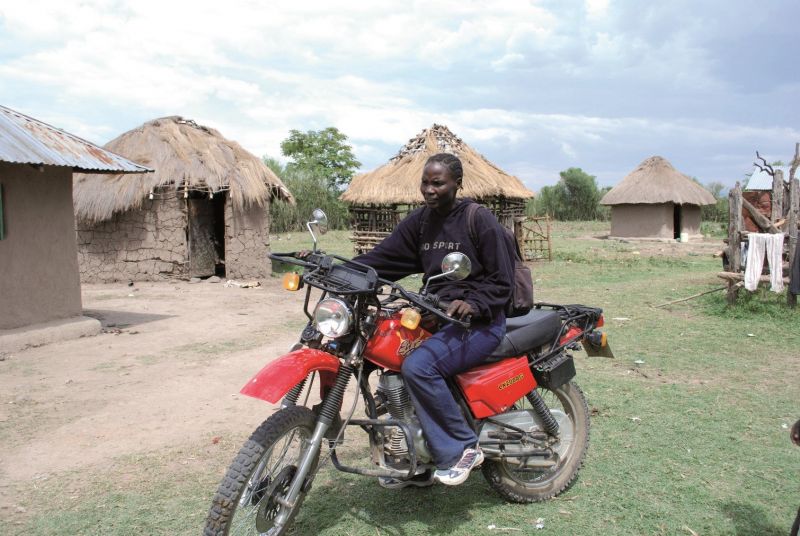The future of travel for the last mile

For millions of people around the world any kind of travel remains an impossible dream. And not just travel for fun or relaxation, but the few kilometres from a village to a school or health clinic. For many the inability to travel is a matter of survival.
A vast number of people across Africa live in isolated villages, hours from the nearest small town. Without transport, or any way to travel, they are cut off. Without any way to travel to them not only is it impossible to reach them in an emergency, but it is also impossible to make sure they receive the basic, preventive health care that will keep them will. Babies go unvaccinated, women do not sleep under bed nets, and mothers give birth alone.
Billions of dollars are spent on developing drugs, on buying bed-nets for some of the world’s poorest countries. Their targets are the people in the most remote communities. But they never get there. Without transport there is no way they will reach that last mile, to the people where it can make a difference.
People assume that this is an issue with technology, some problem that we don’t yet know how to solve. That is what must be stopping health care reaching people in remote communities.
So we spend further billions on mobilising technology to improve the flow of information, or on new forms of transport that will finally bridge that gap. The solution is always just over the horizon.
Except that it isn’t.
The solution is here and now. The right kind of motorcycle can help a health worker travel over almost every terrain. The right four-wheeled drive vehicles, if driven properly, can reach almost anywhere. Riders for Health mobilises 1,400 vehicles across seven countries in Africa. Our vehicles touch on every aspect of health care – from emergency referrals, to vaccinating children, to making sure drugs reach the most rural family.
It doesn't matter how difficult it is to achieve but transport must be maintained - not fixed when it breaks. That is too expensive and unpredictable. Riders takes a leaf out of the airline book. Don't let it break or the consequences will be dire.
We know that it works – not only because Riders for Health have shown it can – but because in most of the world we do it every day. The most important element of any travel is reliability – whether it is delivering health care in rural Malawi, or flying us on a dream holiday. We wouldn’t fly on planes if we thought they were not maintained, and so airlines make sure they are. There should be that same focus on maintaining vehicles for delivering health care in Africa.
In our efforts to look for the new – space travel, driverless cars, and pilotless drones – we have forgotten how completely reliant we are on the basic transport that keeps all of our lives working. There is nothing wrong with looking for new solutions to problems, but we cannot simply ignore answers where they already exist.
And whether it is new technology or old it will still need regular maintenance to keep it working in a reliable way. The result is not only improved health care – where health workers can see up to six times as many people, and spend twice as long with patients – it also creates jobs and skills. A whole industry of skilled, technical people are required to carry out that maintenance and management. These oily hand jobs might seem far removed from health care, but they are just as important as medics and scientists.
As travel for most of us becomes increasingly straightforward and brings us together we cannot forget that it is by connecting people who live in that very last mile that will truly transform the world.
This article is reprinted with permission from Ashoka. It originally appeared on Virgin.com. Andrea Coleman is CEO of Riders for Health, the organisation she co-founded over 20 years ago with her husband, Barry Coleman. Ashoka is a leading global network of social entrepreneurs, with over 3000 fellows spanning 88 countries. It builds networks of pattern-changing social innovators and selects high-impact entrepreneurs, who creatively solve some of the world’s biggest social challenges, to become Ashoka Fellows.


On Nov 21, 2014 Kristin Pedemonti wrote:
Wonderful initiative. Here's to embracing the solutions & using/providing transportation everywhere!
Post Your Reply